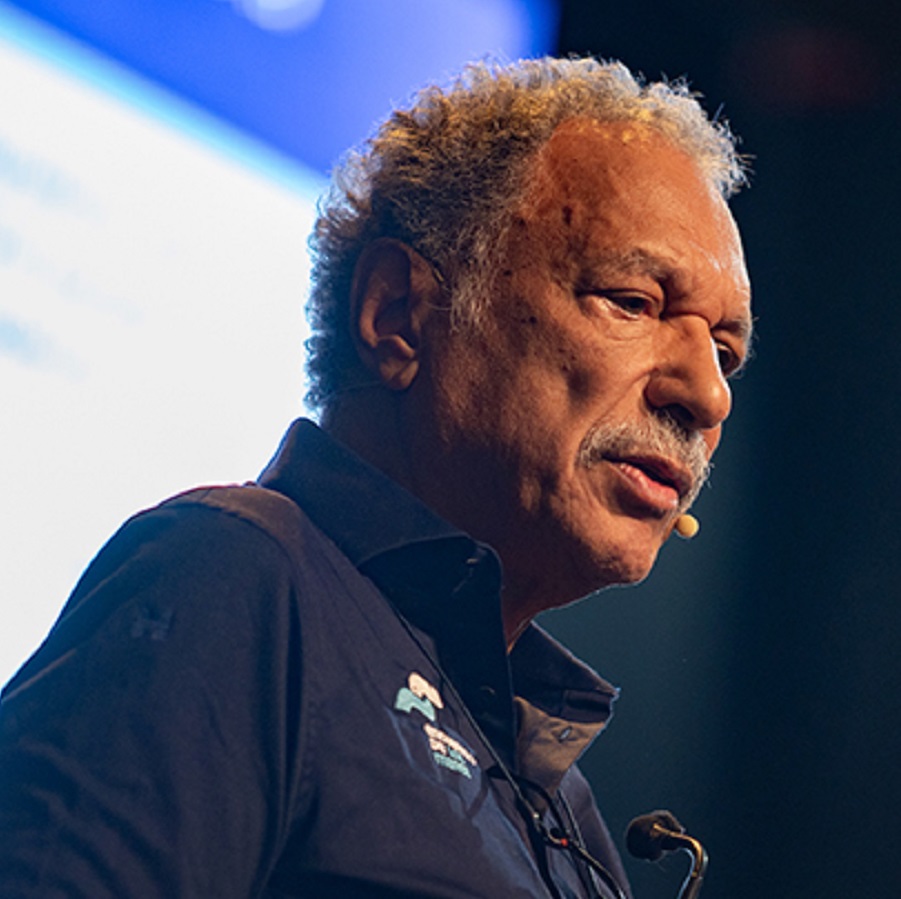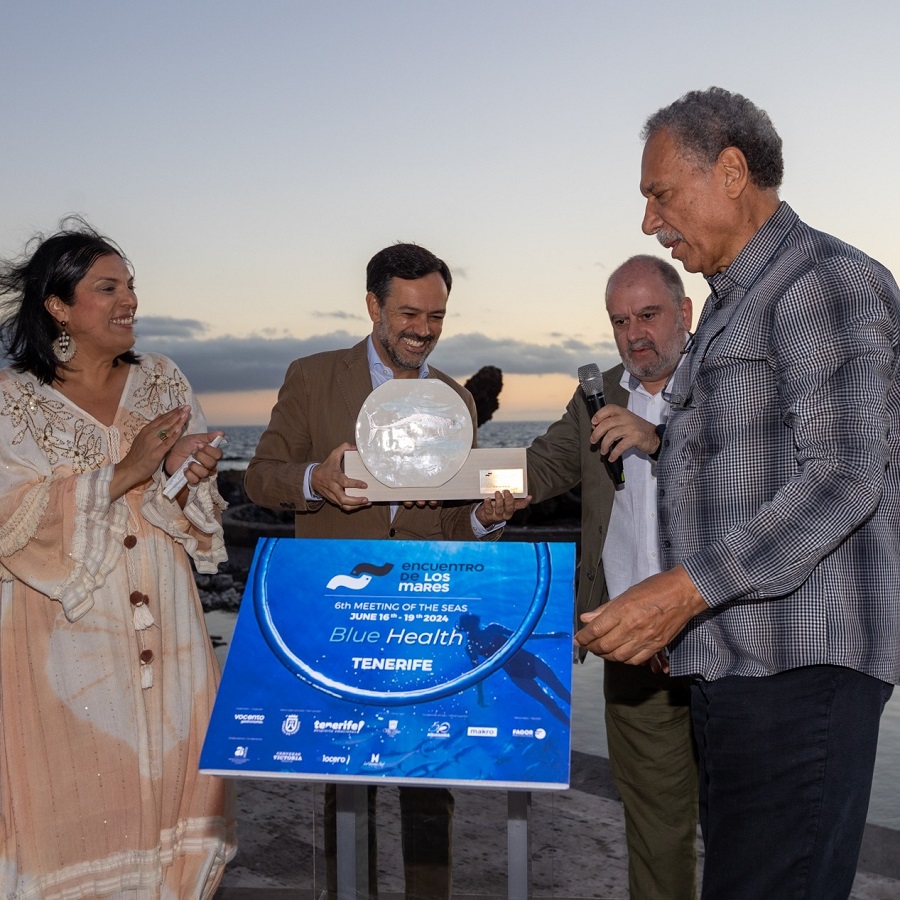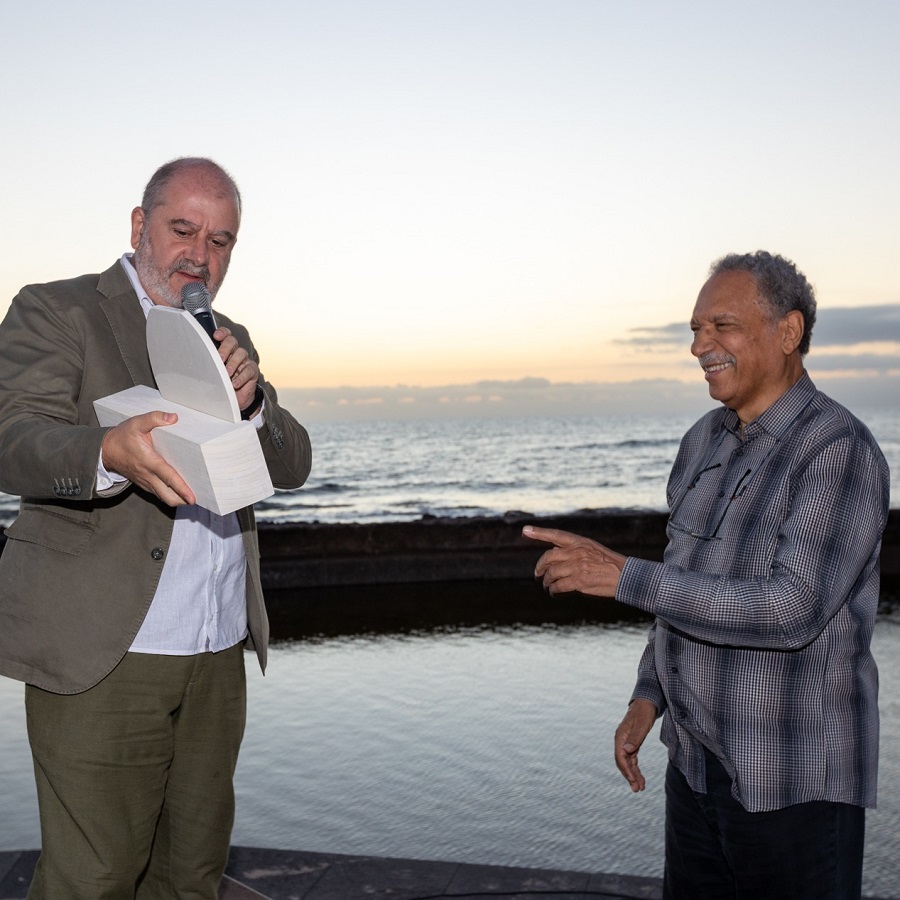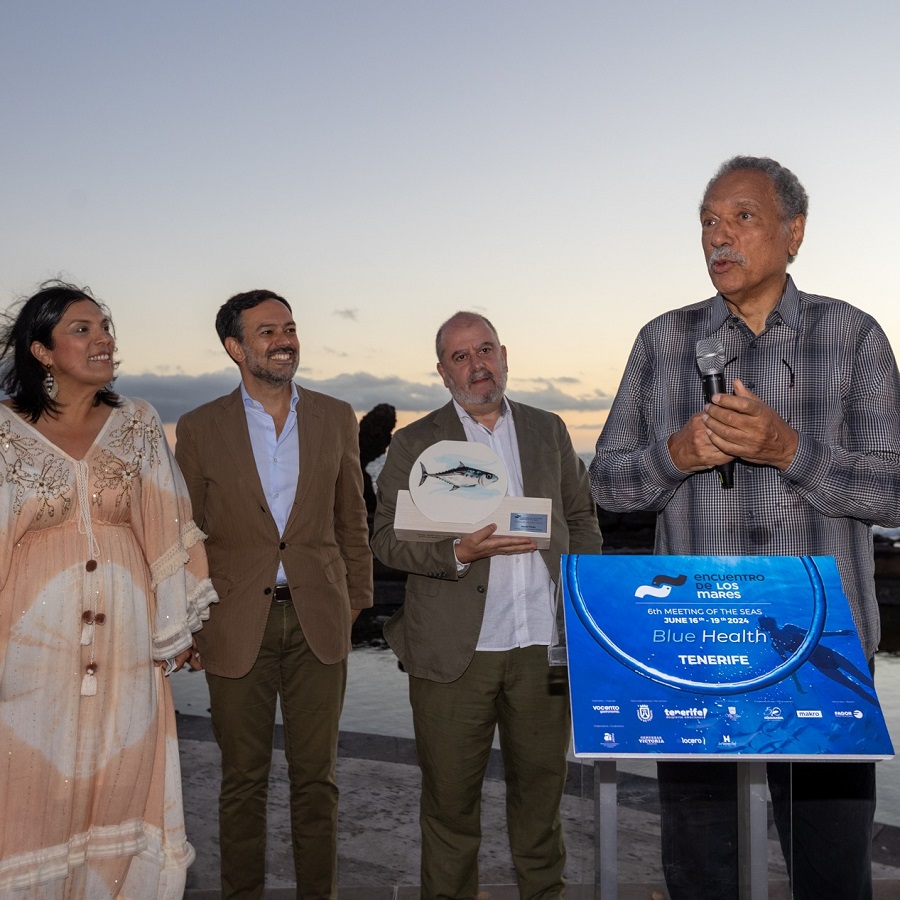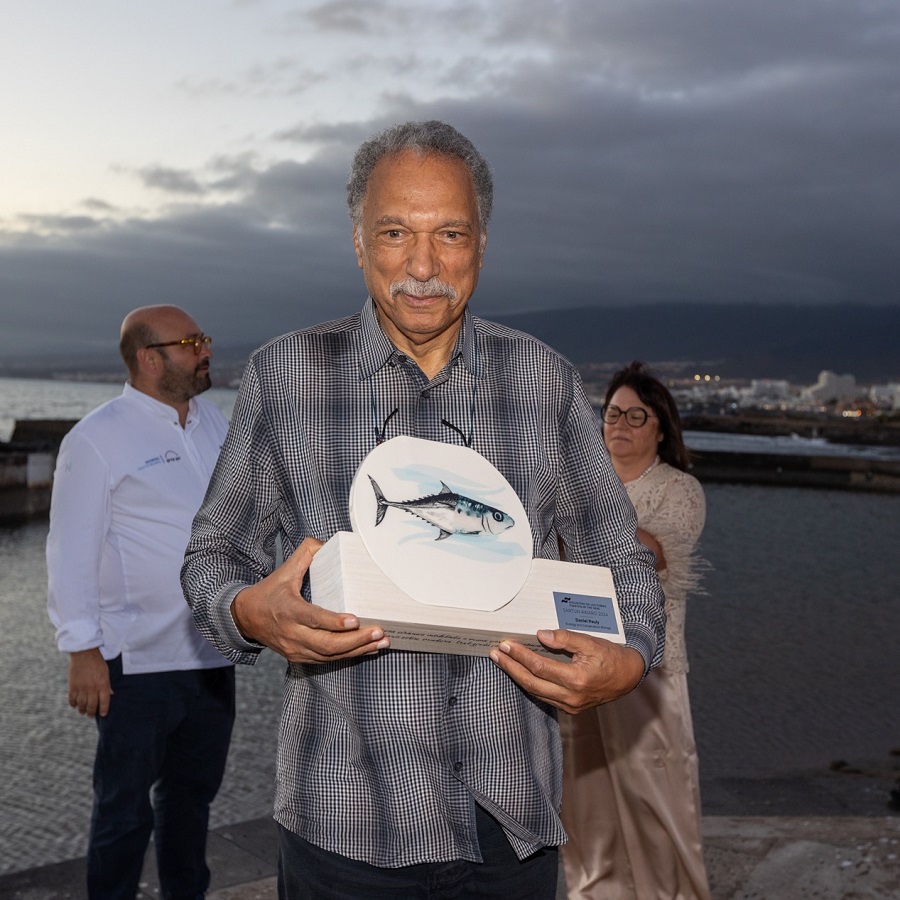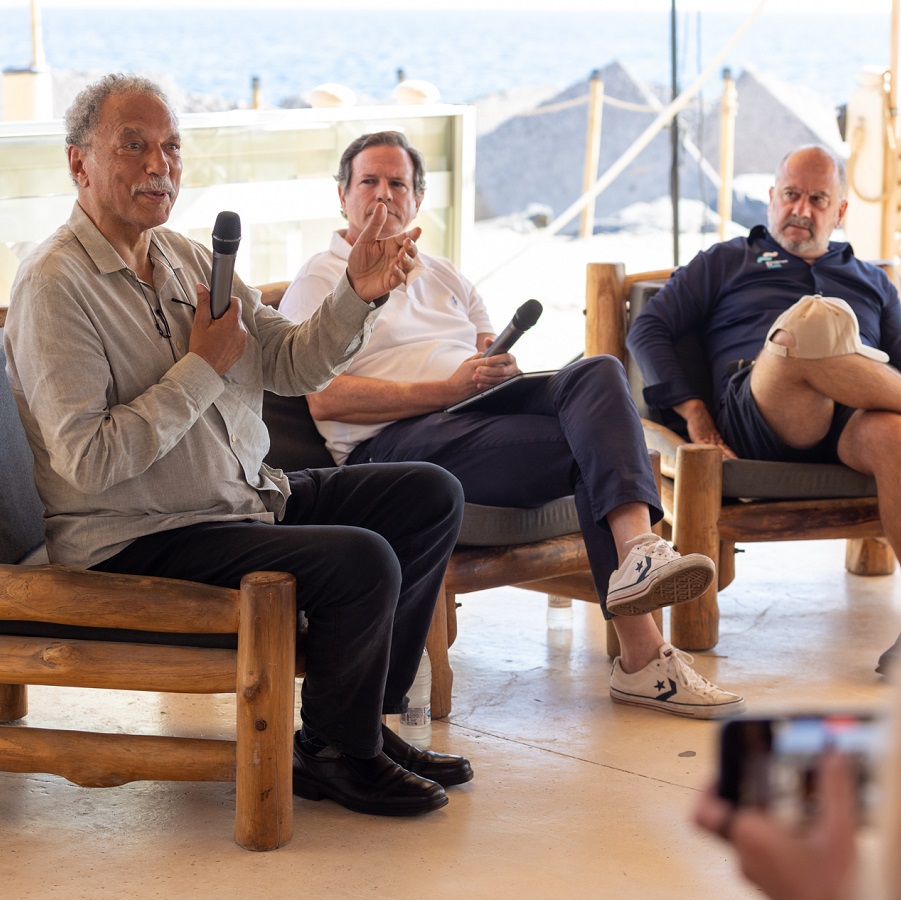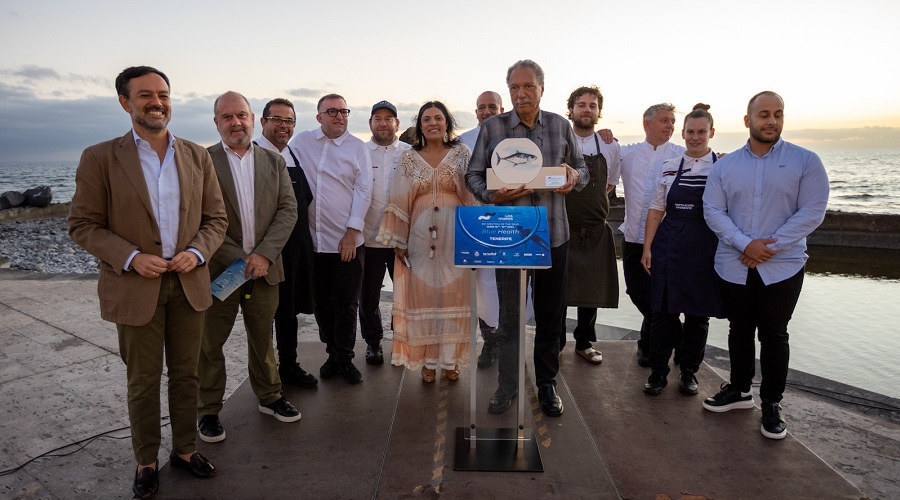
Daniel Pauly receiving the 2024 Sartún Award at the Meeting of the Seas. Photo courtesy of Encuentro de los Mares.
During the 2024 Meeting of the Seas held in Tenerife, Spain, the Sea Around Us principal investigator, Dr. Daniel Pauly, was granted the Sartún Award, in recognition of his +40-year career working for the protection of the global ocean.
Sartún is a combination of the Spanish words for sardine and tuna and is a fictional animal that has become the mascot of the yearly meeting put together by Vocento Gastronomía, an organization that leads haute cuisine congresses in Spain.
On Monday, June 17, 2024, Dr. Pauly presented a keynote titled “Life in our Past, Present and Future Oceans,” which focused on the need to rebalance the relationship between humans and fish populations, with science and political and social will as non-negotiable axes to achieve this goal.
During his talk, the Sea Around Us PI noted that one of humanity’s greatest problems is the extractivist mentality that leads to always wanting more and, in consequence, has promoted the emptying of the ocean.
“We have to abandon this trend. This is the biggest challenge we need to deal with if we want to promote a healthy and restored ocean that can continue to provide for future generations,” he told the audience. “Although there are commendable conservation efforts, such as the establishment of Marine Protected Areas, subsidized industrial fishing continues to be an operation way larger than the available resources.”
Dr. Pauly likened fisheries’ expansion to wider and deeper areas to a war on fish that humanity is winning. Since the mid-1990s, global fisheries catches have been declining at a rate of 1.2 million tonnes per year, according to Sea Around Us data. And despite plummeting stocks pushing fishing fleets to go further offshore and deeper, they are able to continue operating and providing ‘affordable’ products – such as the ubiquitous tuna – thanks to government subsidies that mask the real cost of these goods.
“Any good should be expensive if it is difficult to obtain or rare,” he said. “A piece of tuna is like a Maserati or a Ferrari. Or like caviar. It’s fine to have some caviar here and there, as is having a few Ferraris or Maserati cruising down the streets. But we wouldn’t use these luxury cars as a means of public transportation!”
Dr. Pauly concluded by emphasizing the need for science-based – as opposed to politics-based – fisheries management that respects quotas, closes the high seas to fishing and establishes and enforces large Marine Protected Areas.
- Photo courtesy of Encuentro de los Mares.
- Photo courtesy of Encuentro de los Mares.
- Photo courtesy of Encuentro de los Mares.
- Photo courtesy of Encuentro de los Mares.
- Photo courtesy of Encuentro de los Mares.
- Photo courtesy of Encuentro de los Mares.


